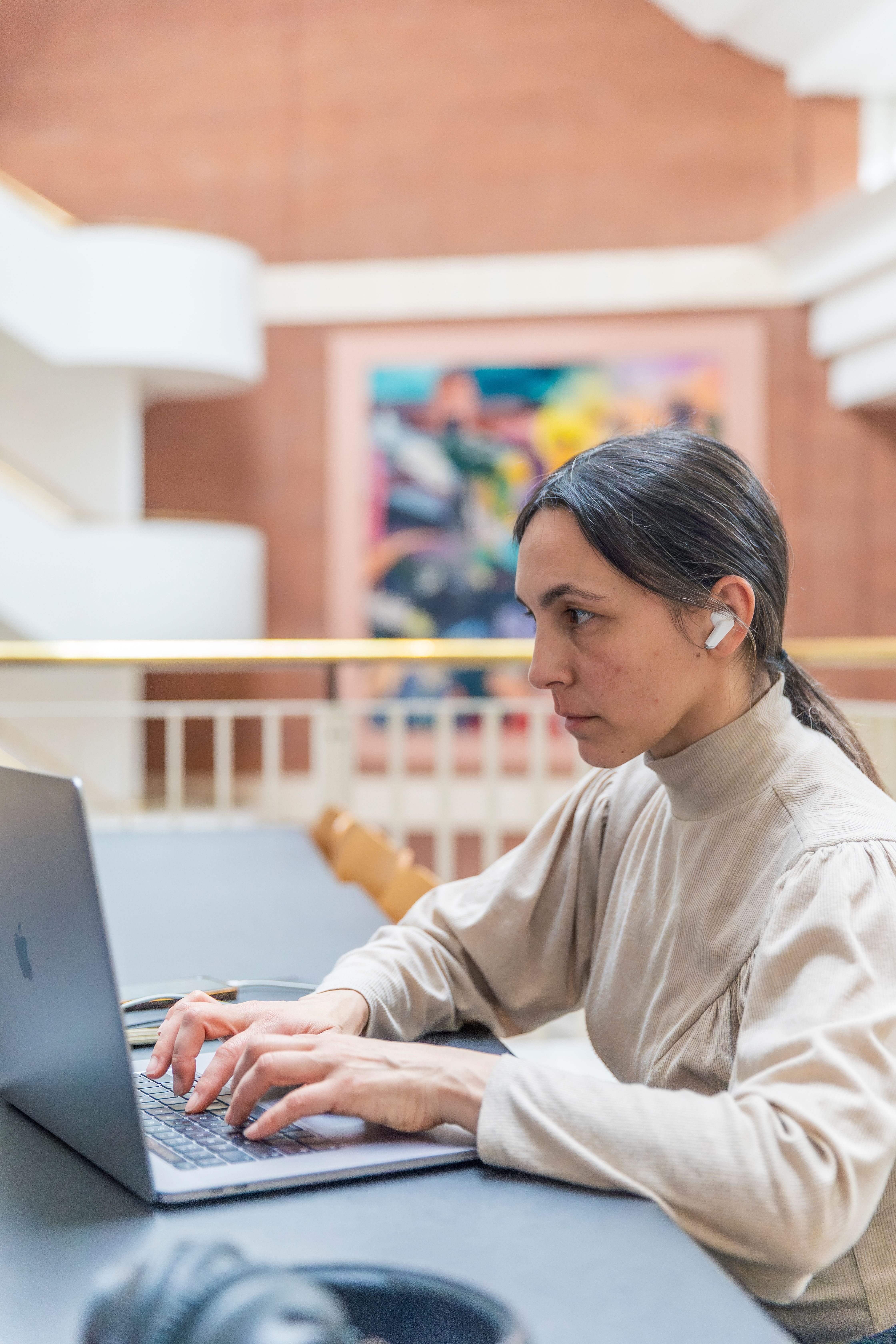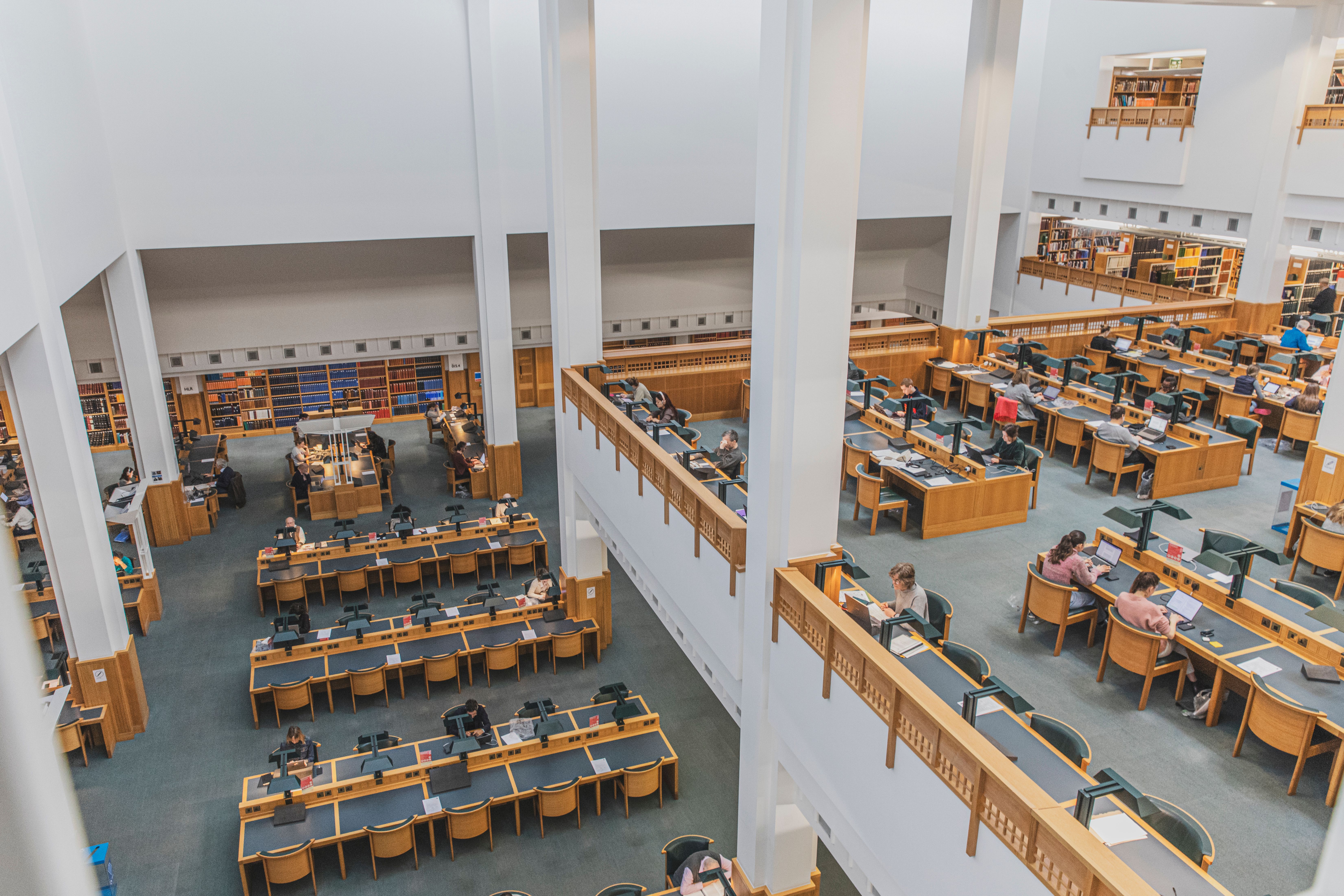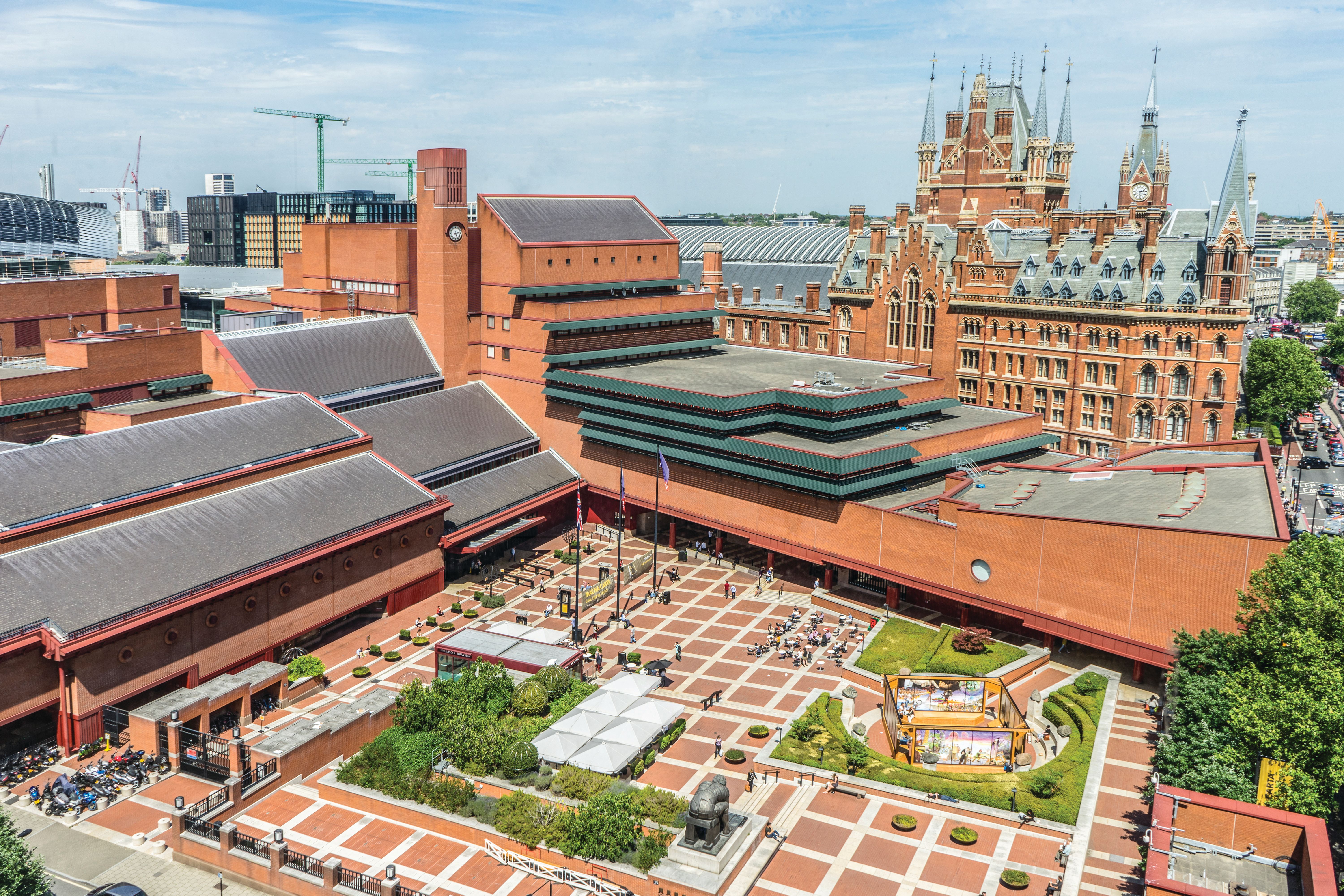Blog series Sound and Vision
Author Megan Thomas (ESRC CASE PhD student and Graduate Impact Assistant) and Dr Jonathan Hogg (Co-I on 'An Oral History of British Nuclear Test Veterans'), University of Liverpool.
The launch of An Oral History of British Nuclear Test Veterans on the 12th of September at The British Library marks the culmination of a two-year project, funded by the Office For Veterans’ Affairs, that captures the testimony and life stories of over 40 nuclear test veterans. This special event will feature the premiere of our 20-minute project film, The Greatest Force on Earth and introduce the major web resource ‘Voices of British Nuclear Test Veterans’ which was created with the National Life Stories team.
At the heart of the project is the wish to capture the voices of those men who witnessed a series of events that forever changed the world around us. The project team formed close connections with the men who witnessed atomic detonations as part of the British nuclear testing programme in the 1950s and 60s, focusing on the whole lives of the veterans to understand the wider meaning and impact of participating in this Cold War activity. The vivid testimony captured by the project team illuminates the diverse life experiences of nuclear test veterans, and several outputs from the project have been created to promote recognition and awareness of this complex and contested history.
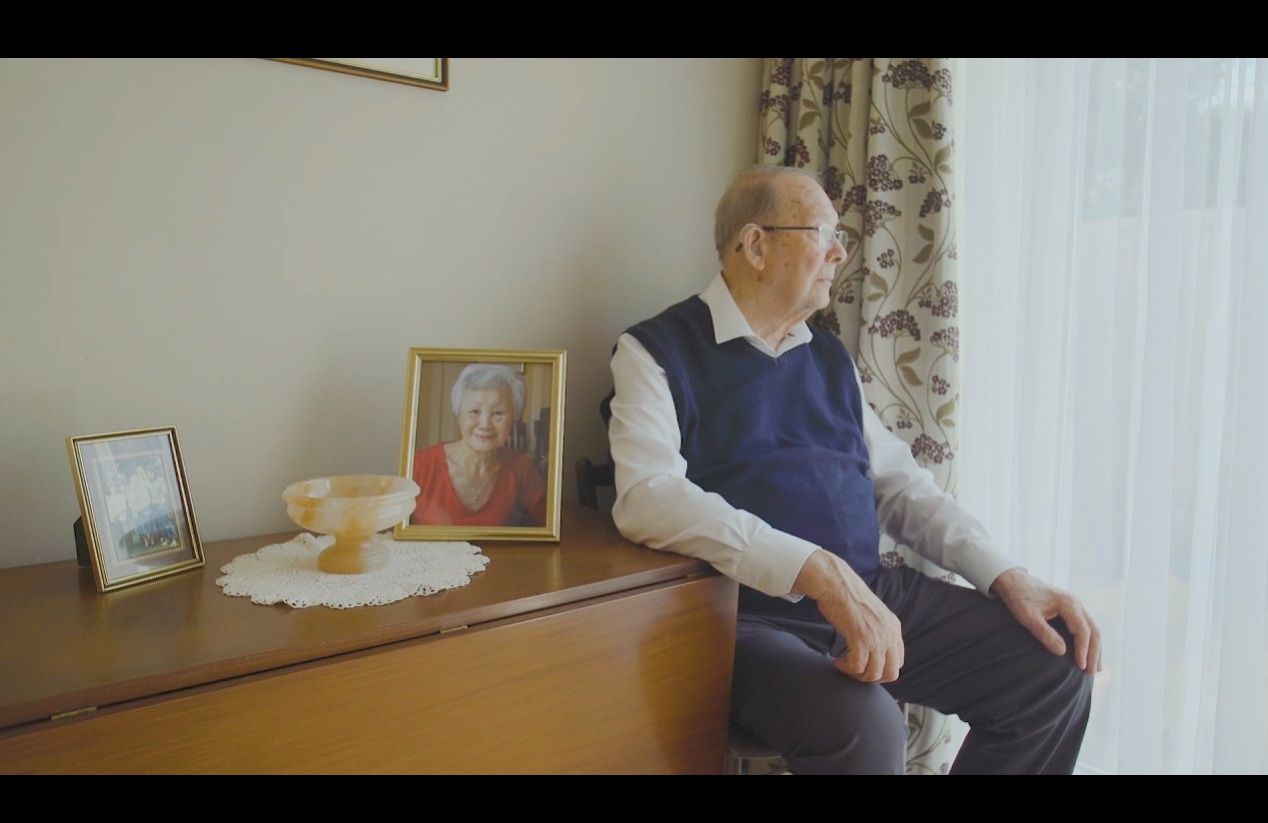
When planning the project film with director Sasha Snow we wanted to capture the different ways in which participating in the British nuclear test programme shaped and impacted upon the life of Frank Bools, a veteran who we had interviewed as part of our project. Frank was a Royal Engineer who helped build the main base camp on Christmas Island in the Pacific Ocean in 1958. We came to realise that the film also mirrored the interview process, capturing both an intimate portrait of Frank but also how talking with him revealed remarkable recollections and anecdotes about his life. The emotive film illuminates the complicated life-long legacy of being a nuclear test veteran and speaks to the universal experiences of love and loss, while also exploring the forces of creation and destruction.
To accompany this unique and original interpretation of nuclear test veteran experience, the project team commissioned comic artist Gareth Sleightholme to create These Atomic Lives. The 20-page comic, which forms part of the educational resources created as part of the project, draws upon nuclear test veteran testimony and contemporary sources materials, such as photographs and radio shows, to offer a snapshot of life abroad working on the nuclear test programme. It also reflects on the inter-generational legacy of Cold War nuclear testing.
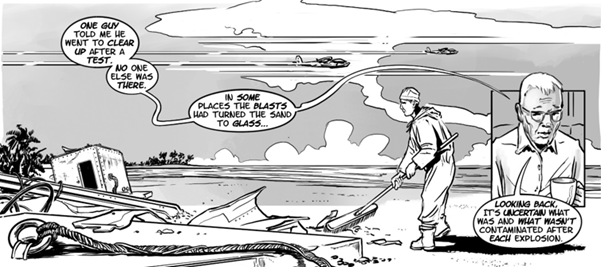
Of course, the interviews with nuclear test veterans serve as the centrepiece of our project. Terry Hilliard, who served as Squadron Pilot and acting Flight Commander in 76 Squadron during Operation Grapple, flew a ‘sniffer plane’ through a nuclear mushroom cloud to collection radioactive air samples as part of the Grapple Z test series in 1958. He described the moment of detonation in the following clip:
Description
Terry Hilliard was born in 1932 and applied to join the RAF at the age of 15. He was promoted to flying officer after his service during the Suez Crisis in 1956 and then participated in Operation Grapple in 1958 with 76 Squadron. He was assigned to fly through radioactive clouds to collect samples after the bomb detonation. In this remarkable clip he relives the experience of witnessing the blast from the cockpit – trying to keep the plane steady while covering his face with one arm.
This is a short extract from an in-depth interview. Terry Hilliard was recorded for the Oral History of British Nuclear Test Veterans project in 2024. The interviewer was Fiona Bowler. This project was run in partnership with National Life Stories and the full interview can be accessed at the British Library.
Transcript
You can’t describe the flash. It was absolutely incredible, and mine wasn’t the most powerful bomb. But you could literally see the bones in your hand, it was just like looking at an X-ray, it was momentarily. But when it had gone and your arm’s down, your eyes were still seeing these bones, it was retentivity on the retina, and it was, you know, you’re looking into a blackness with this bone in there.
And you’re trying to fly this plane!
And with your arm there, with one hand, at your maximum height where the plane tended to stall or get compressibility, and you were trying to hold, because in those days there was no machinery, no autopilots, no computers, it was all push, pull and rudder and wires going to the elevators and you had to pull them physically and so on. So a bit of electric for little motors, but… And you were trying to hold this thing level and talking to the crew: ‘Are you alright in the back there?’ [laughs] And listen to the radio. And then when they said, you know, the turning point, you had to turn the plane.
[ends at 0:01:15]
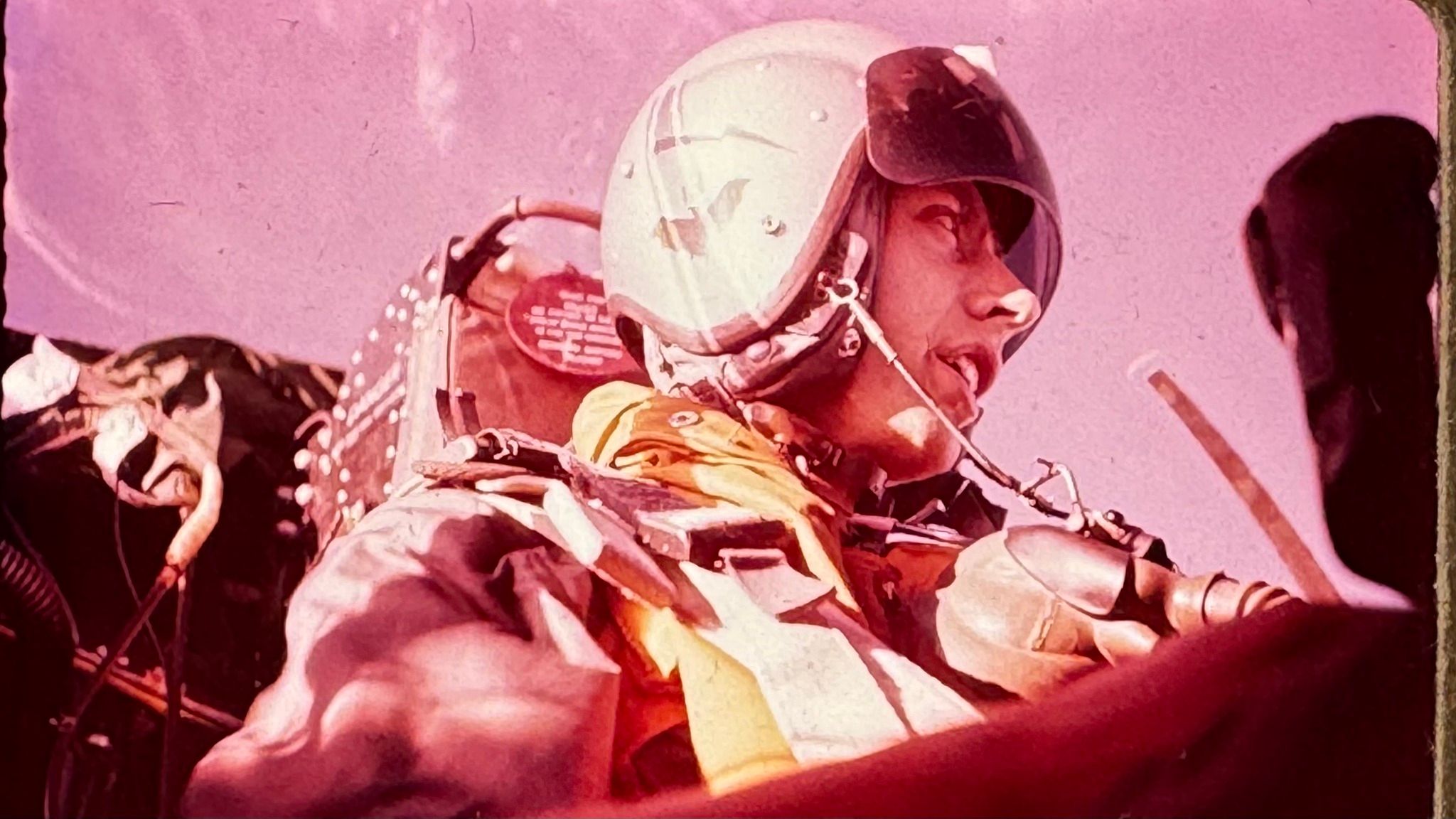
Photo © Terry Hilliard, used with permission.
The project team commissioned eight essays based around remarkable clips like this, and they will appear on the project website in September 2025. In her project essay Dr Laura Considine reflects on the challenges faced by veterans as a result of their extraordinary experiences. The interviews illuminate veterans’ conflicting pride in their national service and helping to ensure the policy of nuclear deterrence, alongside ethical concerns for their part in testing the type of bomb that John Morris, who served in the Army during Operation Grapple, described as a ‘monster’.
Description
John Morris describes his feelings on playing a part in the creation of the British nuclear deterrent. After participating in Operation Grapple, Morris and his family have suffered significant health complications. Due to this, he has become a strong advocate for compensation of veterans and nuclear disarmament.
This is a short extract from an in-depth interview. John Morris was recorded for the Oral History of British Nuclear Test Veterans project in 2024. The interviewer was Jonathan Hogg. The project was run in partnership with National Life Stories and the full interview can be accessed at the British Library.
Transcript
My desire over sixty-three years to get recognition for the veteran, for what we did for this country, we made this country a nuclear power. I regret many times being involved in it. I created or helped to create a monster, and it does weigh heavily, what the monster that I’ve helped make. And it’s, it makes me sad sometimes that somebody could throw one of those bombs, and trust me, you haven’t got a cat in hell’s chance. You might as well give up, because it’ll completely destroy you. And it’s had a profound effect on some of my thoughts. And you do get flashbacks, you do, you do get… you look at your grandchildren, you think, I hope some bugger doesn’t start throwing one of these about, because they’ve no chance.
[ends at 0:01:14]
Dr Chris Hill’s interview with the late Ken McGinley, who described in detail his role in the establishment of the British Nuclear Test Veteran Association (BNTVA) in 1983, is six hours long and stands as a significant record of both Ken’s involvement in the nuclear testing programme and the reasons why test veterans spent years campaigning for justice and recognition. In one clip from Ken’s interview, which is featured in Dr Fiona Bowler’s essay on campaigning, we are told about the origins of the BNTVA.
Description
Ken McGinley discusses the public impact of his article in the Daily Record, which led to further local, national and international news coverage on the ill-health of British nuclear test veterans. Ultimately, this publicity created the conditions in which a national organisation could be formed. McGinley reflects on his role in the founding and naming of this organisation, which became known as the British Nuclear Test Veterans Association (BNTVA). McGinley became the first chair of the BNTVA in 1983, a post he held for over 15 years. He was prolific in collating evidence about British nuclear test veterans’ health conditions and was a constant thorn in the side of the Ministry of Defence.
The photograph shows McGinley speaking at a press conference in Japan. As BNTVA chair, he supported campaigns for nuclear justice worldwide, including in the Ukraine and Russia after the Chernobyl disaster of 1986. In Japan, he achieved minor celebrity as the face of a Japanese brand of Scottish porridge oats. In his interview, he recalled a photograph of himself being accompanied by a caption to the following effect: ‘If the oats are good enough for Scottish hibakusha [bomb-affected people], then they should be good enough for us in Japan’.
At the end of his oral history interview, McGinley wryly pondered how much money he had been able to extract from the UK government on behalf of veterans and their families. Having granted the interview whilst living with stage 4 cancer, McGinley sadly passed away only months after the interview was conducted. His courage, humour and lucidity during the recordings are indicative of the great character he demonstrated throughout his leadership of the BNTVA.
This is a short extract from an in-depth interview. Ken McGinley was recorded for the Oral History of British Nuclear Test Veterans project in 2024. The interviewer was Christopher R Hill. The project was run in partnership with National Life Stories and the full interview can be accessed at the British Library.
Transcript
You’ve got to remember that in November 1982, after I did that article in The Daily Record, what happened was it went from local to national, to international. It went worldwide actually, you know. And before we knew where we were, there were interviews with radio, television. At that time Nationwide had taken it up, BBC had taken it up, STV had taken it up, and I had a great relationship with everybody, especially with Nationwide, because I was in touch with Dr Alice Stewart at Birmingham University because she was doing a lot of research at the time, people were sending in information to her, into Nationwide, and it was all going very, very well.
Alice Stewart was a leading radiobiologist?
Yeah.
Right.
She was a fantastic person. So we decided, when it was all coming to fruition, you might say we were getting things all together, everything was going well, and we decided to hold a meeting down with this other guy who – Tom Armstrong – who was another one who made a claim. So we had a meeting in – this is how the BNTVA were formed – we had a meeting on 5th May 1983 at Birmingham University. People present were Philip Mun, Ken McGinley, Dr Alice Stewart, Dr Tom Sorahan and Tom Armstrong. So there was only five people at that meeting when the Association was founded and named that day. We agreed on, some were saying the British Atomic Veterans, and I says this is going to be a long name, but I would just say British Nuclear Test Veterans Association. That’s the one we’ll have.
[ends at 0:02:19]
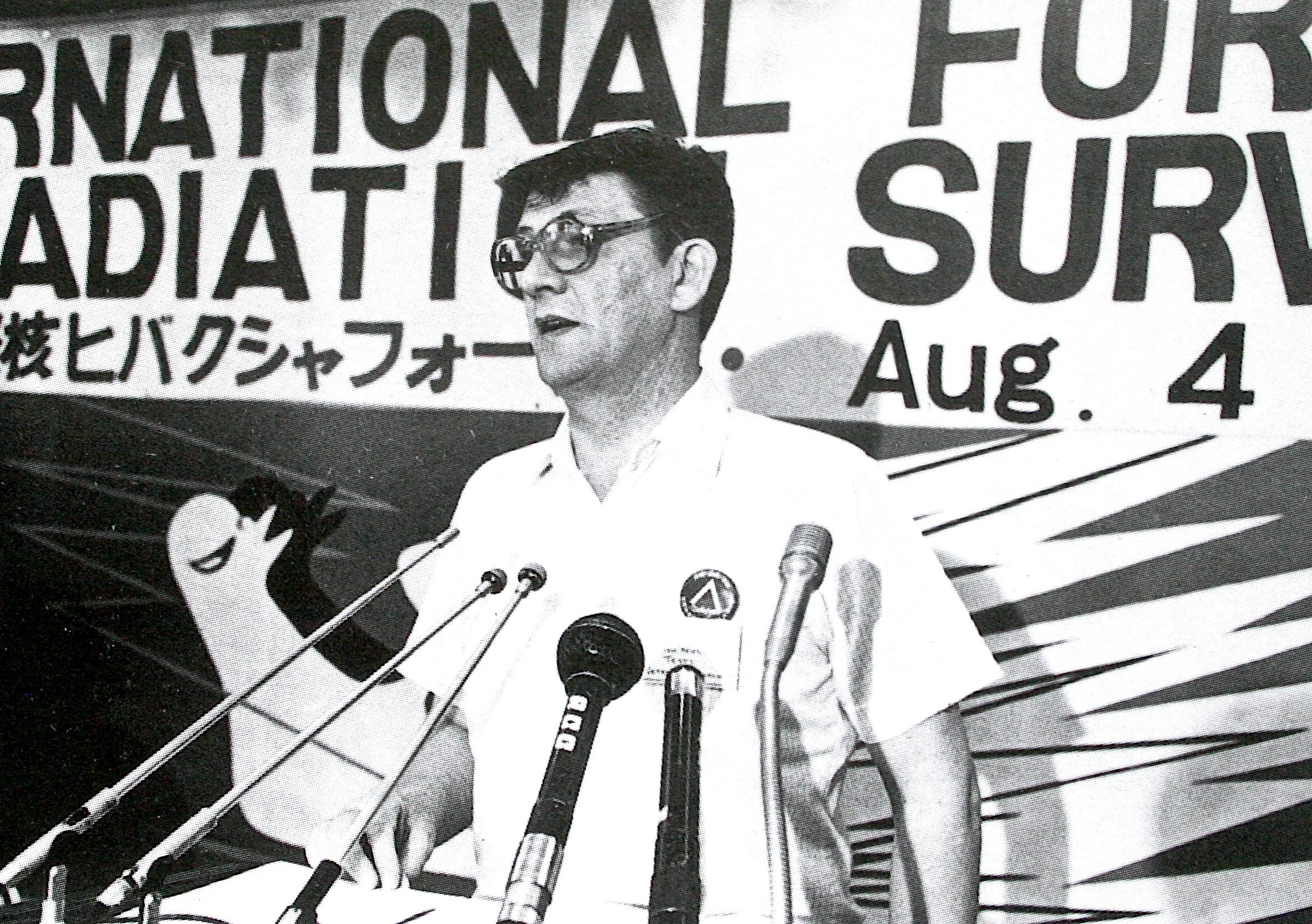
Photo © BNTVA Museum, used with permission.
We are proud that this project helps ensure that the stories of nuclear test veterans are heard, and that the interviews will be stored for future generations at The British Library. We have already reached out to new audiences, and a recent School Citizen Assembly event in Liverpool demonstrated the power of bringing nuclear test veterans and other stakeholders face-to-face with young people.
Funded by the Office for Veterans’ Affairs, ‘An Oral History of British Nuclear Test Veterans’ was led by Dr Chris Hill (PI) from The University of South Wales and Dr Jonathan Hogg (Co-I) from the University of Liverpool, in partnership with The British Library. The project team would like to take this opportunity to thank all of the nuclear test veterans that were part of this project.
Tickets are available now for Veterans Voices: Legacies of Britain's Nuclear Testing Programme, the launch event at the British Library on 12 September 2025.

Sound and vision series
This blog is part of our sound and vision blog series, which highlights the work of our curators, recent acquisitions, digitisation efforts, and collaborations beyond the Library.
It showcases the sound archive’s remarkably diverse collections, spanning from the earliest recordings to born-digital material, and everything in between.
Find out more

Our collections
You can access millions of collection items for free. Including books, newspapers, maps, sound recordings, photographs, patents and stamps.
